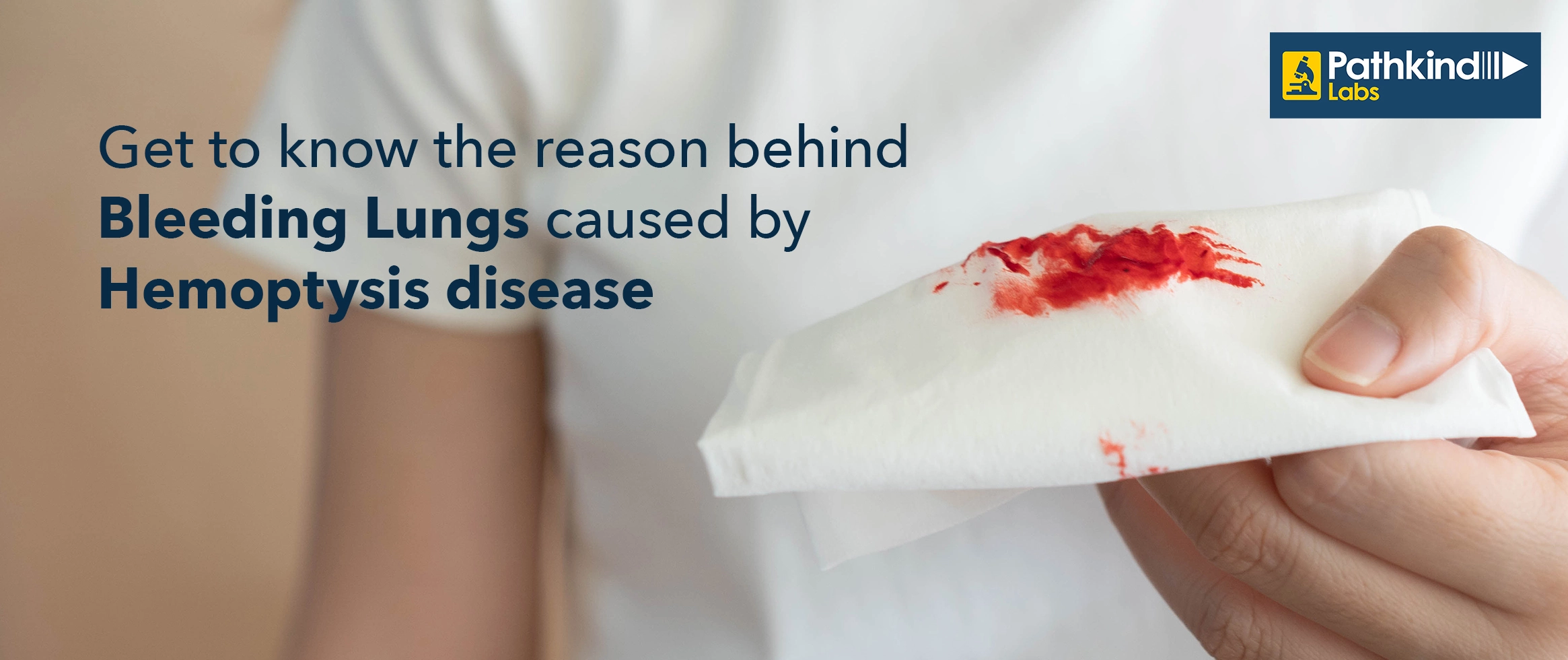
We’ll confirm your booking shortly!
Please provide your number to receive updates.
Enter the 6-digit verification code we just sent you to through SMS. Change Mobile

The medical term for coughing up blood is hemoptysis. Though it can have less concerning causes, it can also be a symptom of a serious underlying condition such as infections, cancer, and problems in blood vessels in the lungs. Individuals suffering from hemoptysis can cough out blood-tinged mucus. In severe cases, they can even vomit a significant amount of blood.
Understanding the reasons behind coughing up blood is the first step towards proper diagnosis and treatment.
In this blog, we will go through the reasons behind hemoptysis, along with their symptoms and possible treatment.
The reasons behind coughing up blood can range from mild to serious. Here are some common causes:
While having similar symptoms, it's important to distinguish hemoptysis from other conditions. Here’s how they differ:
To differentiate Hemoptysis from these minor diseases, depending on the cause of Hemoptysis, the accompanying symptoms differ, such as:
In Hemoptysis, seeking medical attention is crucial. Depending on the symptoms, a differential diagnosis for hemoptysis is recommended. Your doctor may ask about your medical history, and order blood tests, especially a complete blood count to rule out other conditions, chest x-rays, CT scans or bronchoscopy. In some cases, a pulmonary angiogram is needed to know the exact location of bleeding blood vessels.
Hemoptysis treatments strictly depend on the underlying causes. Doctors may prescribe antibiotics and some cough medicines for non-life-threatening hemoptysis, such as bronchitis, the most common cause of hemoptysis. But for life-threatening hemoptysis, you may have to see a pulmonologist and a cardiothoracic surgeon.
Your treatments may include intubation and oxygenation. When your doctor finds out the source of the bleeding, they may stop it with iced saline, medications, laser therapy, in rare cases, surgery, or chemotherapy for lung cancer.
While all this information is intended for general knowledge, one should always consult a professional for proper diagnosis and treatment for hemoptysis. Always remember that early diagnosis and treatment of the underlying cause are essential to overcome the risk of hemoptysis.
Discover precision diagnostics with Pathkind Labs, a trusted name in diagnostic services in India. Our NABL accredited labs, equipped with advanced technology, are staffed by a certified team of over 200+ senior pathologists and 2000+ technicians. From tailored health check-ups to specialized tests in Oncology, Neurology, Gynaecology, Nephrology, and more, we've got your health covered. Skip the hassle with online booking for tests or check-ups, available for both lab visits and at-home blood collection. For a seamless experience and early detection, choose Pathkind Labs in Gurugram. Book your appointment today and experience diagnostics made easy.
© 2025 Pathkind Diagnostics Pvt. Ltd. All Rights Reserved | Unsubscribe
